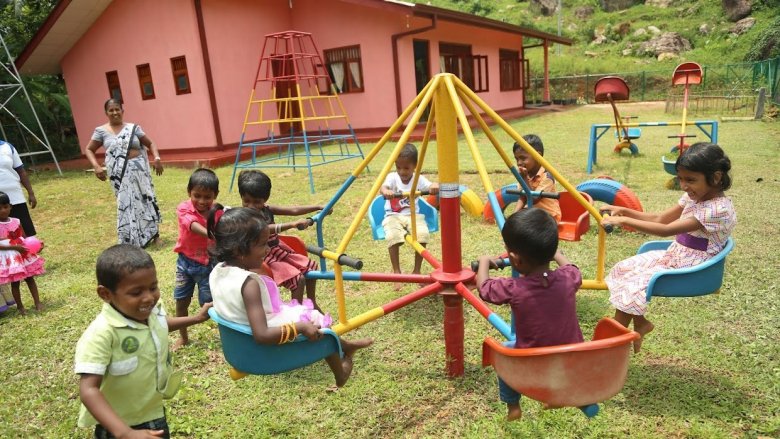Collaborating across the World Bank Group
Improving early childhood development requires a whole-of-government and whole-of-World Bank Group approach. The International Finance Corporation (IFC) and the World Bank have collaborated to produce guidance for Governments and employers on how to deliver quality childcare that keeps children safe, including developing training for employers and childcare providers and a checklist and quality assurance guidance note that will be rolled out globally through World Bank and IFC projects.
In El Salvador, the World Bank and IFC are partnering to improve early childhood education and childcare in both public and private sectors. The World Bank’s Growing up and Learning Together: Comprehensive Early Childhood Development in El Salvador project, along with ELP funding, supported the development of new early learning standards, curriculum, and professional training programs. To engage the private sector, IFC’s Care2Equal program engaged 12 leading employers (employing more than 23,000 people) to create more family-friendly workplaces through a Peer-Learning Platform. By the end, 11 companies achieved 14 firm-specific goals, including enhancing access to quality childcare and strengthening the recruitment and retention of working parents, especially mothers. 100% of participating companies reported improved knowledge and positive business impacts, such as higher employee satisfaction and productivity, reduced absenteeism and turnover, and a stronger company reputation.
World Bank Group Contribution
The World Bank has invested $18.7 billion in early childhood development from 2014-2024, more than 90 percent of which is through IDA and IBRD. The remaining 10 percent comes through Trust Funds, such as the Early Learning Partnership, the Power of Nutrition, the Global Partnership for Education and the Global Financing Facility for Every Woman and Every Child.
Partnerships
Collaborating with partners is foundational to the World Bank’s early childhood work. In 2022, the World Bank launched the Invest in Childcare initiative, which is designed to expand the size and improve the quality of investments in childcare to boost women’s economic empowerment and child development and generate broader benefits for families, businesses and economies. In just five years, the number of World Bank projects with childcare activities has increased from seven to more than 120 and the initiative is expected to support at least 10 million households with quality childcare by 2030. The work has rolled out through close collaboration with UNICEF, UN Women, ILO, We-Fi, governments, and other partners. Most recently UNICEF and the World Bank worked together to produce a note on “Essential Elements of Quality in Childcare settings,” which will be used in 75+ countries to improve childcare quality and all 90+ activities financed by Invest in Childcare have held consultations with civil society stakeholders to inform work and share results.
Looking Ahead
With job creation as a high priority, investments in the early childhood workforce—preschool teachers, community health workers, and other key personnel—will increase. The linkage between childcare and early childhood and women’s employment will be a critical area for countries to focus on new policies and programs to create better jobs and brighter futures. Global estimates suggest 96 million new decent jobs could be created in the childcare sector alone if we expand investments in childcare to meet the needs of families. The World Bank has 350 active projects that focus on supporting young children and their families in 95 countries. These projects are expected to reach 50 million women and children with basic health and nutrition services, enroll 4 million children in preschool and reach more 1.6 million parents with cash transfers and information to support young children’s development.




